‘Grief is love’
My phone rang in the middle of the night. My male college best friend, Mulong Palis, now in Australia, was on the line. Sobbing.
“We lost the fight,” he said. I could hear his heartbreak. I sobbed with him. His mother Virginia, 84, who was also like a mother to me because she saw her son and me dream together at UPLB, succumbed to COVID-19. She died alone in the hospital. An irony for a bubbly, people-person like Nanay Viring.
Prior to her confinement, Nanay Viring was a sprightly woman who, for months already, attended to her balikbayan son Ryan and his wife Olen. She was full of life, filled with verve and wisdom. She was hopeful as she celebrated her 84th birthday in the hospital battling COVID, holding on to her phone and tablet.
But a few days after that, the virus did not respect her love for life. After about two weeks of confinement in a hospital in Los Banos, Nanay Viring passed away.
“No one among us was able to say goodbye. No proper goodbye? What is that? And that is more painful than any pain,” Mulong said. His lamentation was unfathomable.
Grief is heavy like a boulder on the chest–especially in the time of the pandemic. It’s a hatchet that strikes through the heart and mind. Grief has become the motif of social media of late as Facebook walls have turned into an obituary of sort. Every day, a prayer for a loved one or a friend’s loved one is said.
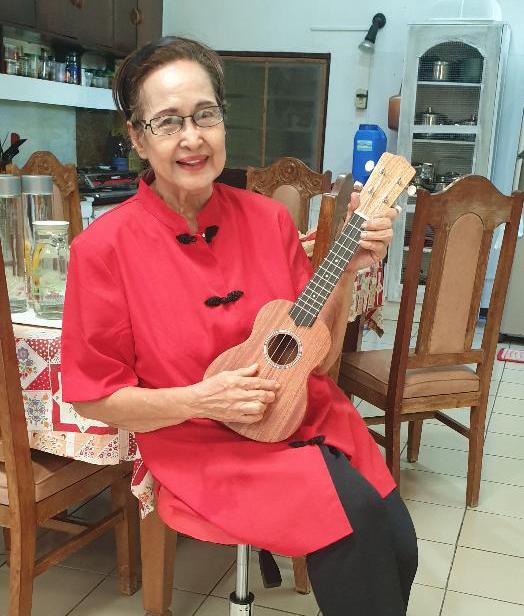
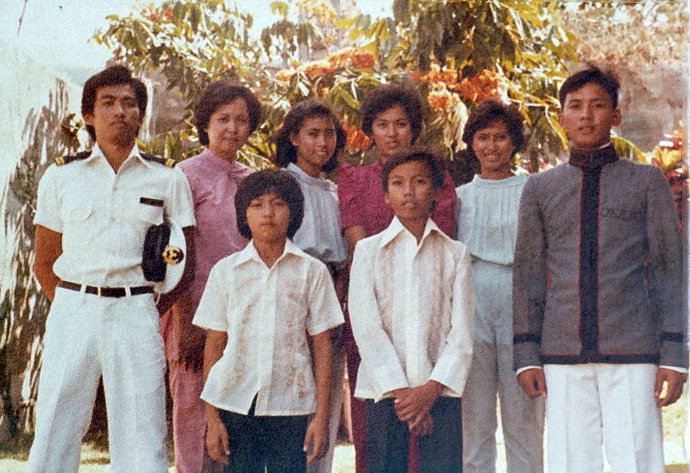
People grieve because people love. Grieving is a celebration of pain and memories. US-based Filipino psychiatrist Geraldine Mayor attests that to grieve is to love.
“I always tell my patients grief is love. The deeper the grief, the deeper your love must be for that person. Thinking about grief as love lessens a small amount the discomfort associated with grief,” Dr. Mayor said.
Losing three siblings
Mav Rufino, painter and vice chairman for the Makati branch of Philippine Red Cross, believes too that grief is a form of love. She finds strength in making a difference in other people’s lives after losing three of her siblings in a span of eight months.
Her brothers Guilly and Tony (Honorary Consul to Portugal) died of COVID-related diseases while her sister Assunta “died peacefully.”
“I busy myself finding blood to save lives,” she said. “It has been a very difficult time during this pandemic. Within eight months, I lost my two brothers Tony and Guilly, and my sister Asunta.
“Guilly had COVID pneumonia and he suffered and passed last July 2020. His son Carlo and I monitored his treatment, made decisions with the ICU team of doctors and nurses. Asunta passed in January. It was a surprise because she was not ill. But it was a peaceful transition.
“Tony was extra careful and he did not go out during the month of March. It was a big shock for him to find out that he tested positive. He had a cardiac arrest before the ambulance came,” Mav narrated.
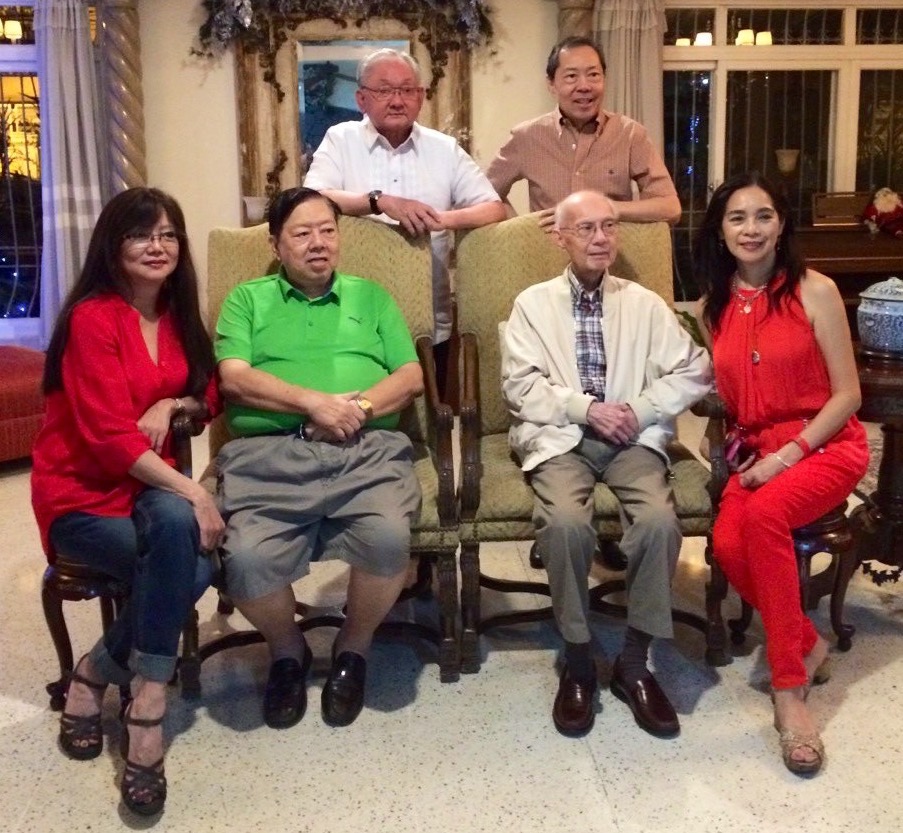
Mav, a beauty in her silence, is also silent in her grief. Perhaps in silence she finds the strength to carry on. Silence is its own healing balm. Silence is Mav’s own marching band.
“There are no words to describe the feelings of sorrow, grief and pain of losing my three older siblings,” she said. “And how can I console their families? We cannot even get together in person. We communicate online. I attend daily Zoom masses and rosaries, spiritual recollections to strengthen my faith and to accept God’s will.”
There are no words to describe the feelings of sorrow, grief and pain of losing my three older siblings. And how can I console their families? We cannot even get together in person.
She added: “We used to be seven siblings. Joey passed in 2006 and Raffy in 2017. I only have my eldest brother Manny. He and I call each other to chat about old movies.”
Mayor, a UP-trained doctor, said: “Grief is a normal reaction. Let it be. Let it exhaust itself. However, be mindful, if it crosses the line into despair, hopelessness, depression. Seeing a therapist is not a bad idea, just to discuss bereavement.”
Hardest part of every story
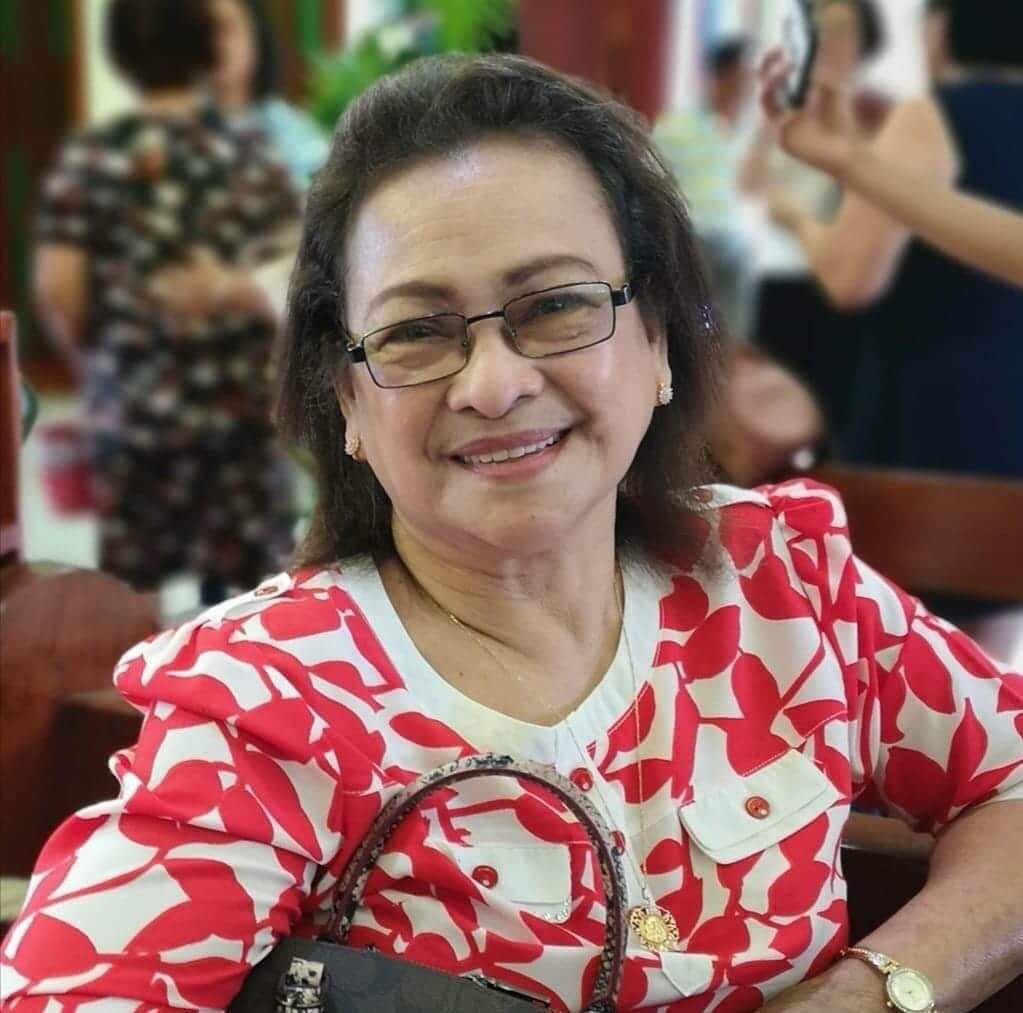
If grief needs to be exhausted, then Judith Alviar-Punongbayan and her family from Marinig, Cabuyao, Laguna are on the right track of grieving, and healing–albeit gingerly.
It’s been nine months since they befriended grief. Not a day passes for Judith without remembering her mom Ines, 66, another beautiful soul and strong spirit felled by the virus.
Judith memorializes her pain by posting about it on FB, as if it is through making public her emotions that she can both hold on to memories and let go of the pain. But, no, she merely clutches on the memories. The pain does not subside. Not a molecule of pain is diminished. Not today. Not in the coming days.
Pain, for her, is the link between the living and the dead. Pain is a balm that makes the memories of the departed throb, alive.
If our resources wouldn’t suffice, we were ready to pawn what we had just to save our mother’s life. My mom was confined for less than a day and we paid a total bill of P786,000
Judith, a nurse, lost her mother Ines Alviar in July last year, when COVID-19 continued to plague humanity since it was first detected in December 2019.
“Moving on is the hardest part of every story, of every family that has lost a loved one to COVID-19. My mother was my life and half of me went with her when she left us,” Judith said.
“All of a sudden, the loving mother, the spoiler lola, the dutiful wife was gone. Gone. Just like that,” she lamented.
The Alviars went on an ordeal when the family matriarch became sick. With their mother’s persistent fever, the family started to “shop” for a hospital. But the surge of COVID patients that time was real and Ines, with comorbidities, was not admitted in any health facilities.
They had the money. But there was a shortage of hospital rooms in Laguna to admit Ines. The symptoms of Ines progressed. By the time her children were able to get a room for her, the virus had already owned her body.
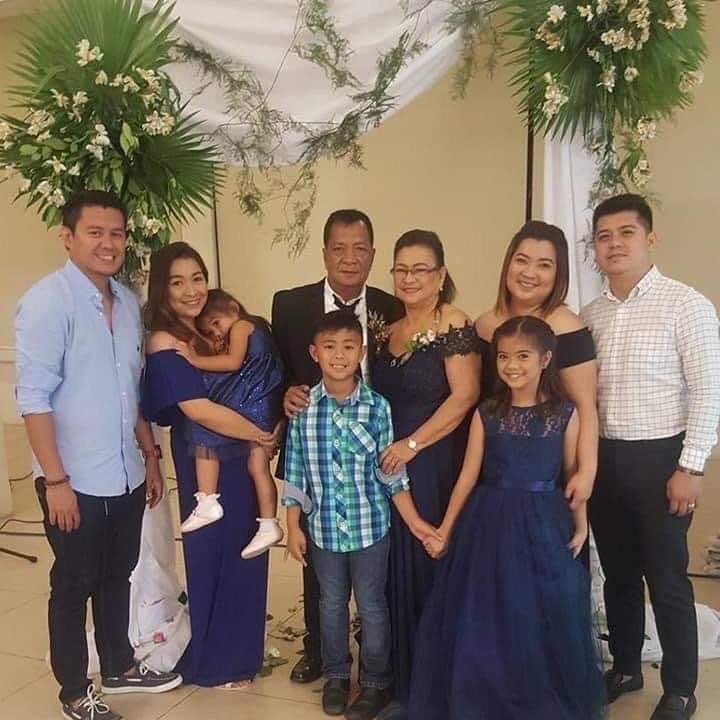
“If our resources wouldn’t suffice, we were ready to pawn what we had just to save our mother’s life. Just imagine, my mom was confined for less than a day and we paid a total bill of P786,000. We could cough out more so that we could prolong her life. Pero wala din kaming iniuwing Nanay,” Judith said.
The most painful of all, Judith continued, is they never had a chance to see their mother while she was battling the disease. Not a chance to hold her hand, to hug her, to kiss her for the last time. They brought her to the hospital in flesh. She came home in ashes.
“We never had the chance to give her her dream funeral (because she would freely discuss with us about death pre-COVID). She prepared everything for us. But we were never ready for this (her death). We will never be ready.”
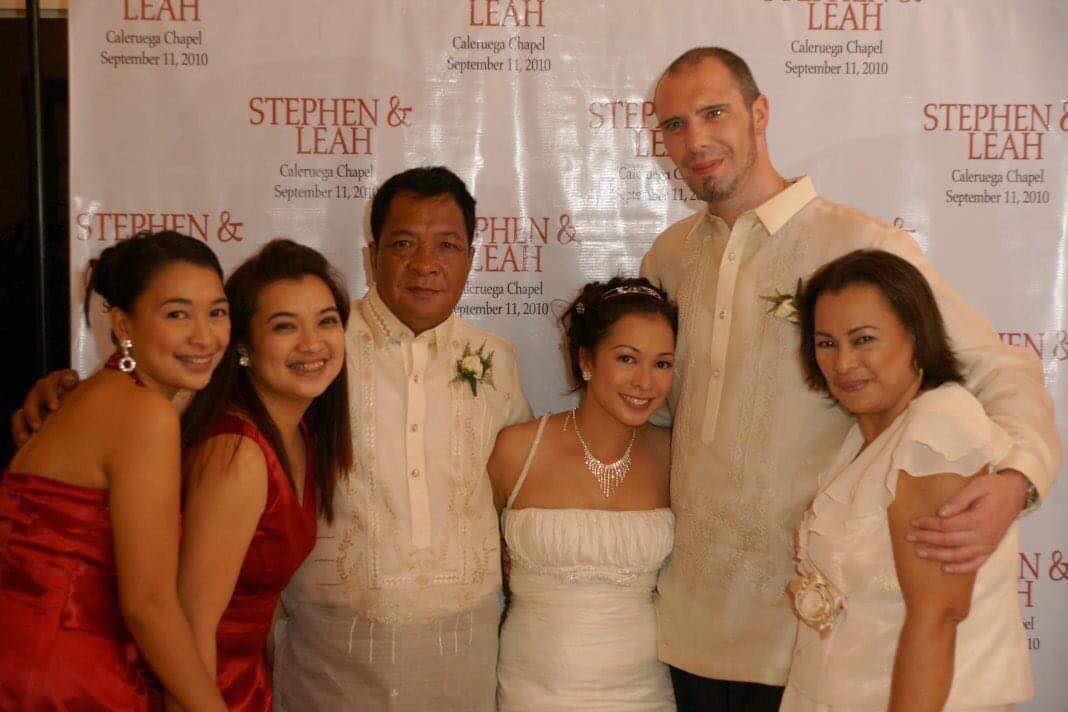
The trauma did not end in the death of her mother, Judith added. “Because of the stigma, no neighbors or relatives were there to console us physically because of fear to be near us, because of fear to be contaminated. With a heavy heart, we understood that.”
For days, as experienced by thousands of families whose loved ones battled COVID or succumbed to the virus, people chatted about them. “It really does not help the bereaved to be gossiped about. The enemy is the virus, not us,” Judith said.
For now, Judith and her whole family battle each day remembering beautiful memories of Ines. Her father Eddie, a strong man and a public servant, consoles himself doing the things his late wife did, washing the laundry, for instance. He feels connected to his wife that way. Other than that, Judith said, her dad, just like every member of the family, is sad.
Sad is an easy word. Sad is a lame word to describe their pain. It’s more than that. In collective pain, the Alviars find love. They halve the pain. Everybody is allowed to be lonely all at the same time. They tame their anger–the many what ifs. They cuddle their fright, angst, grief and sorrow like they tame a shrew. They try to be strong–together. The Alviars heal together.
Art heals
As for Mav, the love of family and close friends is also her anchor. She finds ways to ease the pain. “The love of family and a few close friends has kept me going. It’s hard to live in this surreal environment. I listen to music, read poetry and I write my regular opinion column for BusinessWorld. When MECQ is lifted, I’ll go back to riding horses. My favorite horse Sky passed last October. That was like losing a child. And my heart may be broken by all these losses but God gives me grace. I am always grateful for the blessings and for my extended family- the children of my siblings who are close to me.
“Right now, I just have to regain that sense of balance to keep going. When I see a rainbow, I know that there is hope. I will paint my dreamscapes - sunsets and nature and feel the serenity that art brings,” said Mav, whose mixed media artwork “I dream of Dalí” was part of the recent Leon Gallery auction to benefit Abot Tala foundation to help teenaged students.
“Art heals and there is always a rainbow after the storm. I’ve been through several crises and I shall continue to survive. One should grieve but one needs to reach out to God and remain steadfast in one’s faith,” she said.
On the other hand, Mulong and the entire closely-knit Palis family are still grappling with their seemingly unspeakable loss last April 8. When the IATF will permit a small gathering after the MECQ, a memorial for Nanay Viring will be prepared in Los Banos. Mulong and his siblings living around the world have yet to stop crying. I have yet to wipe the tears on my cellphone after talking to him.
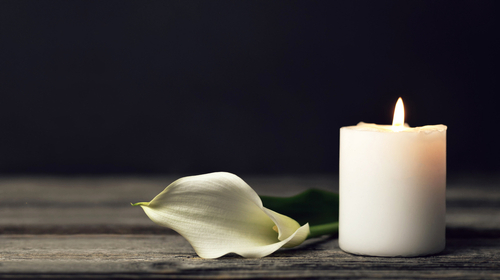
Nanay Viring, a wonder woman who loved to share stories and share the food in her kitchen, would love a memorial. The virus stole her body but it can never steal the love and joy she brought to her loved ones. She could fill a vast room with her laughter–and with her kitchen magic masquerading as sumptuous food.
Dr. Mayor observed that “while a family death is always painful, the memory of the wake and funeral service is mixed with nostalgia, rather than trauma.”
“That is because of Filipinos love to gather and share a meal. The remaining elders of the family always want to make sure everyone is well fed, so food is always flowing. And with any gathering are stories shared. Filipinos have a wicked, even mean sense of humor, so there will always be jokes exchanged. I know that is ironic, given the sad setting it is exchanged.
“However, laughter, even for a brief moment, gives our minds relief for sad thoughts. It relaxes the tight muscles of our face, contracted from crying and despair. And release happy hormones, that can overall lift our mood, and sense of hope. So I would say, humor and the love for food, are comforting ways Filipinos cope with grief,” Dr. Mayor said.
There will be better days–and safer days–for all those who grieve. The Palises, the Alviars, the Rufinos and all other families who grieve will one day be comforted. For now, grieving is the order of the day.
As Dr. Geraldine Mayor said, “grief is love.”
“Spend more time with other people who know and love the deceased. You can share stories, memories together. Your togetherness prolongs the sense of presence of the deceased among you, which can be comforting and eases the acceptance that he or she is gone,” Dr. Mayor suggested.
Filling the void
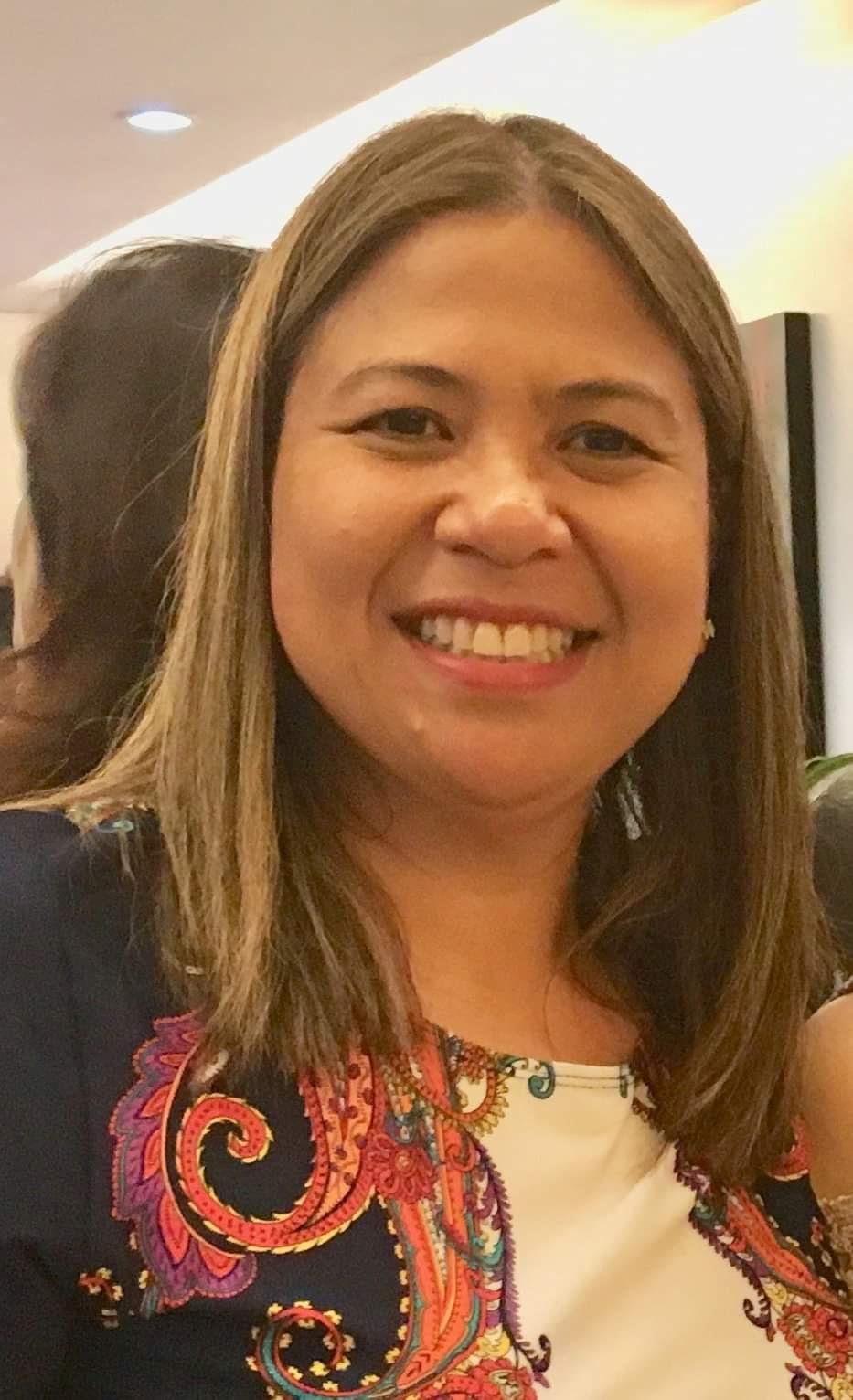
The lady psychiatrist said: “Memorialize your loved one. Create a scrapbook, a slideshow, a film, plant a shurb or tree. Part of the pain of grief is not being able to express the love you have to that person anymore. So these are good outlets.”
Dr. Mayor added: “Eventually, one must fill the void left by the loved one and the activities usually spent with the loved one. Don't be alone, spend time with others, maintain relationships. Get back on your usual activities and hobbies, after a brief period of vegetating. Find new ones, too. Learning new activities renews or creates nerve cells in the brain. Also create new memories that can balance thoughts one has related to grief.”
The virus is the silent enemy and the silent enemy is still present. While the silent war is still on, there will always be bleeding hearts. We long for the war to stop. But when?
Sorrow is a vessel of emotions where imminent joy is masked in pain and happiness is basked upon on beautiful memories. Tears are but a litany of wounded hearts aching to heal. But healing is not expedited by a series of despair. It’s a process learned by befriending pain and time.
Grief, indeed, is love. It aids in healing.


